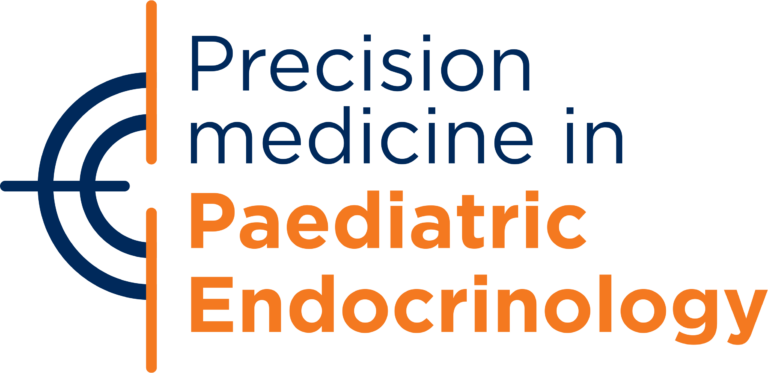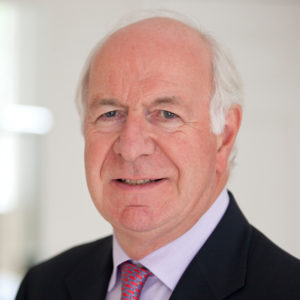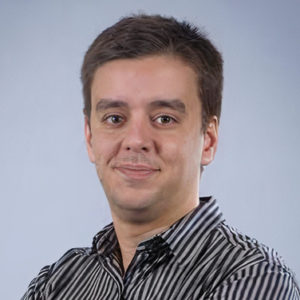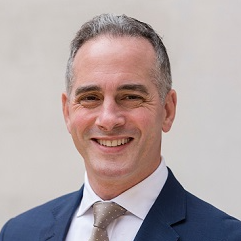
Interviews
Publishing date: 20th June 2022
Standardised clinical practice, ie a ‘one-size-fits-all’ approach is now out-dated and has been replaced by a personalised approach to each patient which is applied through the principles of precision medicine. Its delivery requires a paradigm shift for HCPs with the inclusion of constantly evolving technologies and care strategies.
Join Professor Martin Savage and expert colleagues for this series of interviews as they explore different perspectives and insights into how to successfully implement precision medicine into the management of paediatric endocrine disorders.
Faculty and disclosures
- Martin Savage
- Luis Fernandez-Luque
- Paul Dimitri
- Laura-Maria Peltonen
- Rosa Maria Baños
Professor Martin Savage
Martin Savage is Emeritus Professor of Paediatric Endocrinology at William Harvey Research Institute, Barts and the London School of Medicine & Dentistry, Queen Mary, University of London, UK.
He was Head of the Paediatric Endocrine Unit at Barts and the London School of Medicine from 1982 to 2007. He is a clinician with clinical and research interests in growth disorders, specifically those with abnormalities in the growth hormone (GH)–IGF-1 axis. His main research field has been the phenotype–genotype relationships of GH–IGF-1 axis defects, notably GH resistance. He published the first human case of an IGF-1 gene defect in the New England Journal of Medicine in 1996.
His other clinical interests are Cushing’s syndrome and growth in chronic inflammatory diseases. He was General Secretary of the European Society for Paediatric Endocrinology (ESPE) from 1997 to 2004. Professor Savage has lectured in 60 countries worldwide and has published more than 460 original articles, reviews, textbook chapters, and books. In 2007, he was awarded the ESPE Andrea Prader Prize for contributions to paediatric endocrinology, and in 2018 he received a Visionary Award from the American Human Growth Foundation. He continues to lecture nationally and internationally.
Disclosures
- Consultancy agreements with Ipsen, Sandoz, Merck KGaA, Darmstadt, OPKO, and Genexine-Handok.
- Honoraria for lectures from GeneScience, and Novo Nordisk.

Dr Luis Fernandez-Luque PhD
Dr Luis Fernandez-Luque’s research focus has been on the adaptation of mobile and web technologies for patient support and public health. His scientific contributions in mobile health, which includes both mobile and wearable devices, are among the most cited and pioneering in the field, dating back to 2006. Dr Fernandez-Luque has made substantial contributions in the creation and validation of artificial intelligence applications based on mobile and wearable technologies, including technologies such as deep learning and health recommender systems. His career has focused on the crossroads between computer science and behavioral change. He has ample experience in combining human factors research with artificial intelligence – that know-how is of crucial importance for the successful completion of the aims of the project. Dr Fernandez-Luque’s focus on human factors and data-driven applications dates back to his PhD dissertation, which focused on the trustworthiness aspects of information retrieval within patient education.
As Chief Scientific Officer at Adhera Health (Palo Alto, CA, USA), Dr Fernandez-Luque oversees the implementation of the research roadmap for their digital therapeutics platform. The evidence-based platform combines mobile technologies with artificial intelligence (recommender systems) to provide personalised patient support designed to improve the physical and mental wellbeing of people living with chronic conditions. In addition, Dr Fernandez-Luque is a senior member of the IEEE Engineering in Medicine and Biology Society and Vice-President of the International Medical Informatics Association. He has over 100 publications cited in Google Scholar.
Disclosures
Employee and co-founder at Adhera Health Inc.

Professor Paul Dimitri, BSc, MBChB, FRCPCH, PhD
Professor Paul Dimitri works at Sheffield Children’s NHS Foundation Trust, UK, as Professor of Child Health, Consultant in Paediatric Endocrinology, and Director of Research & Innovation. Professor Dimitri trained at the University of St. Andrews, Scotland, in Medical Science where he was awarded a distinction in Pathology, and he qualified in Medicine at the University of Manchester in 1997. He moved to Sheffield in 1998 to take up training in Paediatrics and then Paediatric Endocrinology. Following the completion of his PhD, he was appointed as a Consultant in Paediatric Endocrinology in 2009.
Professor Dimitri is currently the Vice President of Science and Research at the Royal College of Paediatrics & Child Health, National Institute for Health Research (NIHR) National Children’s Specialty Lead, the Director of the NIHR Children & Young People MedTech Co-operative (www.cypmedtech.nihr.ac.uk ), and the Clinical Director for the National Technology Innovation Transforming Child Health (TITCH) Network (www.titch.org.uk ). He has led the development and implementation of national technology networks that specifically focus on the development and adoption of technology for paediatrics and child health through private and public sector collaboration. Since 2014, these networks have leveraged around £15 million to ensure that children and young people receive the most advanced healthcare.
Disclosures
Received payments for leading on a global E-Advisory Board with Merck to support the development of a digital ecosystem for children with growth disorders on growth hormone therapy.

Dr Laura-Maria Peltonen, PhD, MNSc, RN, FEANS
Dr Laura-Maria Peltonen is currently Adjunct Professor and Clinical Lecturer in the Department of Nursing Science at the University of Turku. Her areas of expertise include intensive care nursing, hospital operative management, and health language processing. She completed her master’s degree in 2013 and PhD in 2018 at the Department of Nursing Science, University of Turku.
Her research focuses on the intelligent use of information to support decision-making of professionals in health service delivery. She has a leadership position at the IKITK research consortium, which develops clinical information and language technology solutions for healthcare, and she is a Co-chair for the IMIA NI SIG Governance Advisory Panel.
Disclosures
Dr Laura-Maria Peltonen has no conflicts of interest to disclose.

Professor Rosa Maria Baños Rivera
Professor Rosa Maria Baños Rivera is currently Full Professor of Psychopathology in the University of Valencia, Director of the Instituto Polibienestar (https://www.polibienestar.org/) Director of the Labpsitec-Valencia group (https://labpsitec.blogs.uv.es/en/home/), Director of the master’s degree “Multidisciplinary Interventions for Emotional Eating and Personality Disorders”, and also Director of four postgraduate diplomas. Prof. Dr. Baños Rivera is also the leader of a research group within CIBER action in Spain (Centers for Biomedical Research in Network) in the area of Biomedicine and Health Sciences (www.ciberobn.es). Her research activity has focused on the study of psychopathology and the treatment of various psychological disorders, as well as the promotion of wellbeing and quality of life. Furthermore, her research is focused in the field of ICT applications for psychology, and the opportunities for technological applications to promote basic and applied research within wellbeing and health.
Disclosures
Professor Rosa Maria Baños Rivera has no conflicts of interest to disclose.

Learning objectives
- Explain the concept of precision medicine and how it can be applied to paediatric endocrinology.
- Debate the key role nurses play in the application of precision medicine to paediatric endocrinology.
- Describe the importance of incorporating psychosocial factors into precision medicine strategies.
Planning committee
Springer Healthcare IME planning committee staff include Kamran Ahmad and Rebecca Cox. The Planning Committee have no financial relationships to disclose.
Educational grant
This programme is made possible thanks to an educational grant received from Merck Healthcare KGaA, Darmstadt, Germany.
sign up for alerts
More videos coming soon! Sign up to be the first to know. Please complete the fields below:
